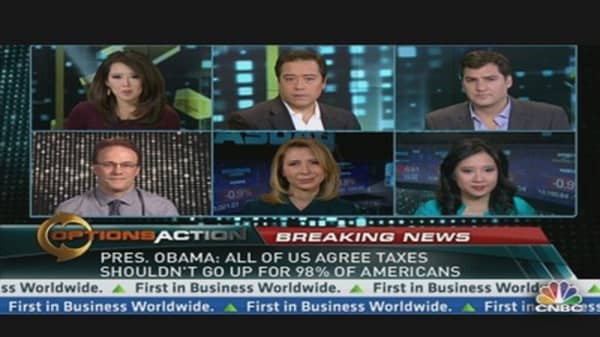Happy Friday, everyone!
Then again, maybe not.
Congress is heading home without a solution to the 'fiscal cliff' and President Obama haschallenged Republicans and Democrats to come up with a compromise in the next ten days.
In the meantime, these pros have ideas for using currencies to trade the impasse.
Rebecca Patterson, chief investment officer at Bessemer Trust, wants to avoid risk. She told CNBC's Melissa Lee that she thinks there could be a 'Plan C' offered up, but "in my mind, for the market, a Plan C is not enough to get us a bullish case for cyclical assets." She points out that a debate over the debt ceiling is looming, and "we're not seeing anything that resembles bipartisanship at this point." Between the political battles and low year-end trading volume, she anticipates considerable choppiness in the coming weeks.





